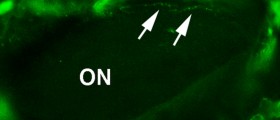
General Causes
Causes of female infertility may be various. The most common one is ovulation failure which is known as anovulation. Most of the cases can be treated with the help of medications. Reasons to this condition may be:
Hormonal background. Hormonal disbalance is responsible for delayed or prevented ovulation. One of the results may be inability to produce mature eggs and it can be because of polycystic ovaries. Polycystic ovary syndrome is characterized with enlarged ovary, reduced level of FSH and raised level of testosterone and oestrogen that can additionally increase risk of breast cancer. Ovulation is hindered due to incomplete development of ovarian follicles. Hypothalamus failure can be second reason for hormonal problem. And thirdly, it can be due to malfunction of pituitary gland that produces FSH and LH. Hypothalamus and pituitary gland failure can be the result of some disorder or chemical disbalance.Scarred ovaries. This can occur because of physical injure of ovaries, like surgical procedures or repetitive ovarian cysts or due to influence of infections.Early menopause. Reason to this is unknown but some women prematurely begin menopause. Genetics is associated to this condition.Follicle problems. Ovulation can’t take place since follicle doesn’t rupture and the egg remains inside the ovary. Other causesTubal disease that can result in mild adhesion to total obstruction, can occur because of: 1) infection by bacteria and viruses that is transmitted sexually, 2) diseases of abdomen that may affect fallopian tubes, 3) surgical procedures that can damage the tubes, 4) ectopic pregnancy, 5) tubal abnormalities.
Endometriosis is a condition that affects 5 million women in US. It is characterized by disproportionate growth of uterus lining known as endometrium. Symptoms are painful periods, rectal bleeding and urinary rush, though they can sometimes be absent. Chance of conceiving is reduced by 12-36% of chance. 10% of infertile couples suffer from endometriosis.
Adenomyosis, polyps, congenital abnormalities and problems with cervical mucus can also have influence on fertility.
Lifestyle, behavior and general health can have impact as well. Body weight must be kept optimal. Smoking can reduce sperm counts in men and cause preterm labor in women. Alcohol drinking can cause fetal alcohol syndrome, birth defects and lower sperm counts in men. Consuming drugs can result in severe damages in baby.
Medical procedures like x-rays and chemotherapy are also harmful to fertility in both men and women. Chemicals used for sterilization, pesticides and ethylene oxide can induce miscarriage, cause birth effects, ovarian problems and impact fertility. These should be particularly avoided in first trimester of pregnancy.

















Your thoughts on this
Loading...